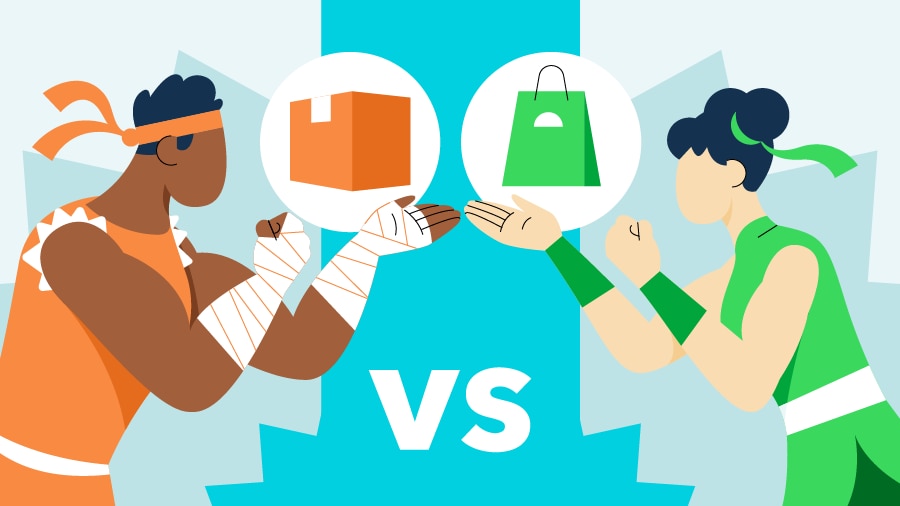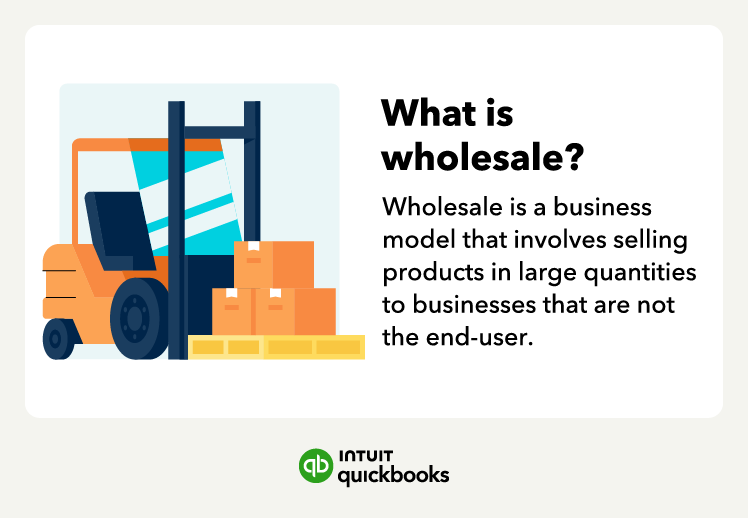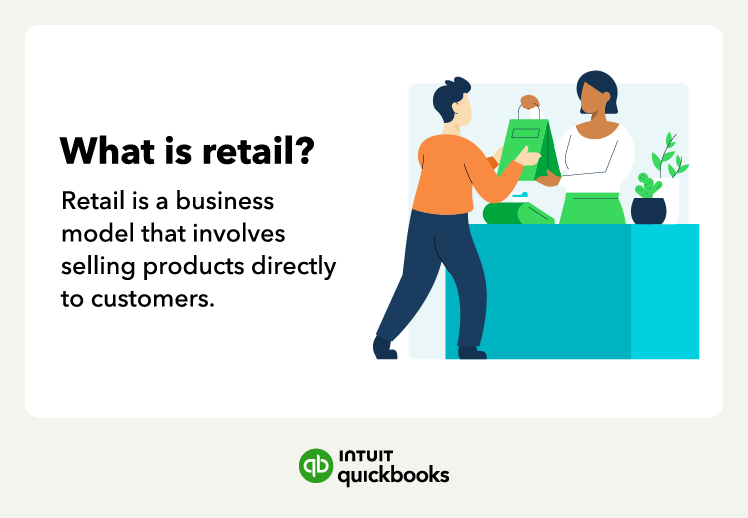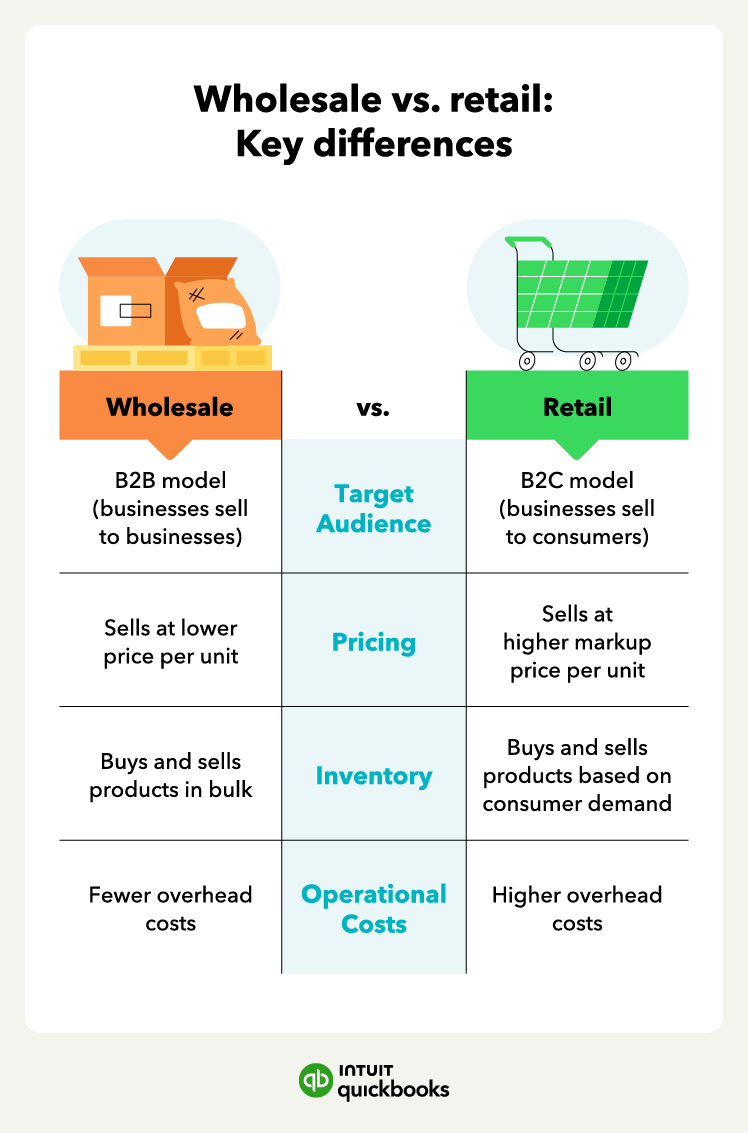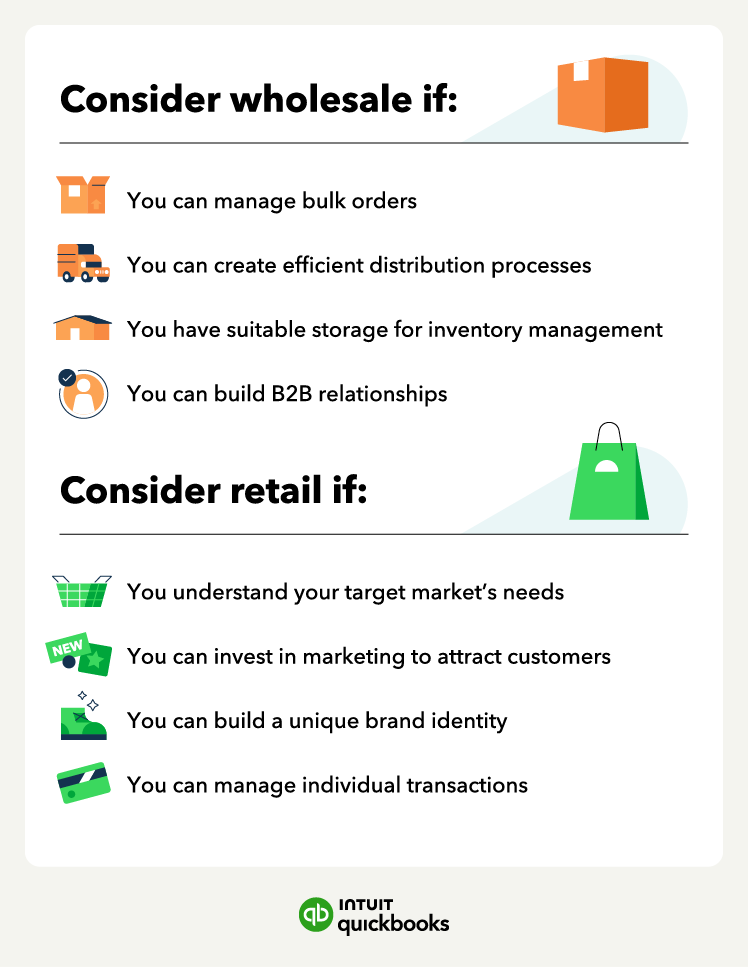Understanding the key distinctions between wholesale vs. retail can help you make the most informed decision about your business model and sales strategy. Below, we’ll cover how each differs in terms of target audiences, pricing structures, profit margins, inventory management, and operational considerations.
Who you’re selling to
One of the main differences between wholesalers and retailers is who you’re selling to. In a wholesale model, you sell products to other businesses, retailers, or resellers rather than individual customers. In a retail model, you sell directly to the consumer.
The focus of a wholesaler is supplying large quantities of goods to other businesses, who will sell that product to their customers. Their primary concern is meeting the needs of the businesses or retailers purchasing the products, not the final customers. Alternatively, retailers focus on the end customer who will purchase the goods for personal use. If you’re selling products only to distribute “final products,” then you can consider yourself a retailer.
Pricing and profit margin
Wholesalers and retailers also differ when it comes to product pricing structure. In a wholesale model, small business owners typically sell their products at a lower price per unit than the retail price. This allows retailers to mark up their prices and make a profit when their end consumer makes a purchase.
While wholesalers generally charge a lower price per unit for their products than retailers, they make up for it in a higher volume of sales since retailers purchase wholesale products in bulk.
And while retailers command higher prices for their products, part of their marked-up price is intended to cover additional expenses like overhead costs, marketing, and in-store customer experience.
Inventory management
Inventory management is another key difference between a wholesaler and a retailer. Since wholesalers tend to sell products in bulk to retailers or businesses, they have to manage large quantities of inventory. This makes warehouse space a key consideration for wholesalers to ensure they have enough room for bulk inventory. It also requires careful planning to ensure their product stock levels can meet the demand of their buyers.
As for retailers, inventory management prioritizes consumer demand. This requires having the right products available at the right time according to customer preferences. Retailers must strike a balance between having sufficient inventory to meet customer demand without buying too much or too little overall. Purchasing too much inventory can result in excess inventory costs, and purchasing too little can result in lost sales opportunities. Overall, strategic inventory management is crucial for both wholesalers and retailers.
How to determine whether wholesale vs. retail is right for your business








